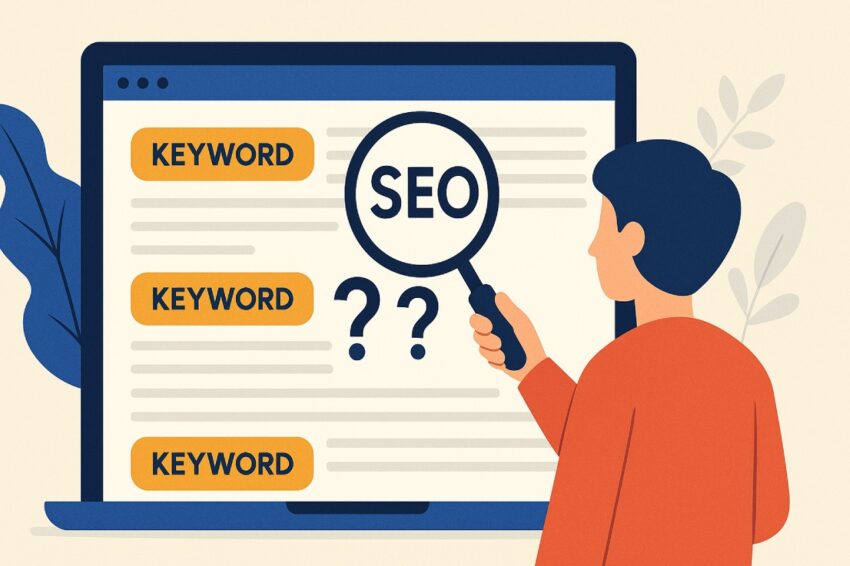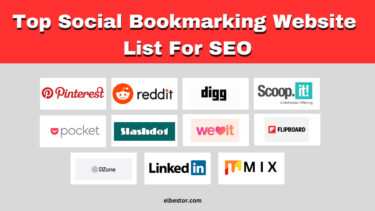As a (Search Engine Optimization) SEO professional, have you ever found yourself asking, “How many keywords should I target on a page to rank on top of Google?” — well, this is not limited to you. It is a question that comes to almost every SEO’s mind, whether you are a solo blogger or a big SEO team.
According to SEJ (Search Engine Journal), keyword usage still matters so much for SEO success, but things have changed, and it is different from the way it was a decade ago. Those days are gone when sprinkling your target keyword everywhere (and anywhere) could get you to page one. In this time, search engines like Google have evolved so much, and their updates and algorithms are beyond keyword counts. They analyze context, intent, and overall content quality to decide what truly deserves to rank.
Hi there, my name is Pawan Kumar, an SEO expert, delivering results to businesses since 2019, and this guide will clear your confusion about “how many keywords should you target” or use a page for the best results. Let’s start it, so you can stop guessing and start writing content that both your audience and Google will love.
Contents
What Does “Keywords per Page” Really Mean?
As we all know, this common SEO question is “How many keywords should I target per page?” Some people think it is a single phrase or word repeated over and over. But in this modern SEO is more layered than that.
Think of it like this:
- Primary keywords: It is also known as the focus keyword, and the main topic your page is built around, the exact phrase or search term you’d love to rank #1 for.
- Secondary keywords: It is closely related terms and phrases that are around the primary keyword. In simple words, it targets the other related variations of the focus keyword your audience might search for.
- LSI keywords & related terms: As per Backlinko, LSI (latent semantic indexing) keywords are terms that are conceptually related to your target keywords. In other words, using related words and phrases (“LSI keywords”) to better categorize a page’s topic. Rather than just basing it on individual keywords.
For example, if your primary keyword is “Best Digital Marketing Company,” your page might naturally include supporting phrases like “Top Digital Marketing Company,” “Digital Marketing Agency,” or “Online marketing Company.”
Following and using different layers of keywords is not about tricking search engine algorithms; it’s about fully covering the topic so users get complete, helpful information. That is also where topic clusters come in: grouping content pieces around related themes to help search engines (and readers) see your expertise. And thanks to semantic search, Google is better than ever at connecting these dots and rewarding content that thinks beyond single keywords.
Deciding Which Keywords to Target
Before we decide the target keyword per page, you can think about it in your mind, for what topic you are creating this content and page?
Step 1: Define your page’s focus
Let’s imagine you run an agency offering various digital marketing services. And you want to create a page and target those people and businesses who are looking for help online. But what’s the best keyword to target?
Well, to get the best ideas, it is good to use tools for keyword research like Google Keyword Planner, Ahrefs, or SEMrush. You might discover that terms like “digital marketing services,” “online marketing agency,” and “internet marketing company” each have different levels of search volume and competition.
After this, you may have a better idea about keywords, and you find “digital marketing services” has the strongest combination of relevance and volume. So, you can choose this as your primary keyword and the main topic your page will focus on.
In this step, you look for keywords that are closely related to your main topic to help reach different search intents. These might include:
- “SEO services”
- “PPC management”
- “Social media marketing services”
- “Content marketing agency”
- “Email marketing solutions”
When people need digital marketing services, they might be looking for the above services, and these all fit naturally under the broader topic of digital marketing services.
At this stage, you can decide on the structure:
- Have one comprehensive landing page about all digital marketing services, which is not preferred based on my experience, what I have learned throughout my SEO journey.
- Or build a main page that tells all the categories and links to their dedicated pages for each specific service keyword.
Step 3: Structure your content for users and search engines
This step is where you need to decide and structure the content so it’s easy to navigate and optimized for both people and search engines. Example:
- Let’s take the “Digital Marketing Services” as your main page that introduces what you offer. Also explains the benefits, and uses your main focused keyword naturally in headings and meta tags.
- But, it has also internal links to pages for its other terms like “SEO Services,” “PPC Management,” and “Social Media Marketing.”
- Each page goes in-depth into its topic, using related keywords and answering common questions clients might have.
Now again a question hits in our mind…
How Many SEO Keywords Should I Use Per Page?
Well, it’s best to target a single primary keyword for each page on your website. But, if there are keyword variations and user intent is different for the same category but specific, then you should create separate pages to explore those variations in more depth. As we said in the above example of “digital marketing services”.
It means you should be as specific as you can for a page. But you need to do this naturally and ensure that you add everything around the main keyword in a sensible manner. By doing this, you can reach the target audience through Google.
If you cover each related topic in more detail, you are also able to increase the authority in your niche, and as we know, the Authority is one of the ranking factors E.E.A.T.. So, it can help both your visitors and search engines notice that you are an expert in your niche. By this, your page can get qualified traffic and also rank in your niche.
So, it is good to focus on a keyword per page, because this helps keep the message clear and direct. From there, you can add contextual internal links to more detailed sub-pages, strengthening your overall site structure. This method guides Google in understanding how your content pieces relate to each other, enhancing your chances of ranking well.
Also Read: SEO Statistics in 2025 Latest Figures
Suggested Number of Keywords As Per Content Length
As per our experiences and after done so many SEO projects, we have found some effective pattern as per the content length. Like we found that primary keyword should be 1 for any page whether its a 300, 500 or 1000 words content. But we have shared that what you can practice with secondary keywords.
| Content Length | Primary Keywords | Secondary Keywords | Usage |
| 300-500 words (Short) | 1 | 3-5 | Good for a blog posts or product descriptions that is not focusing on so many things. |
| 500-1000 words (Medium) | 1 | 5-10 | Good for standard articles. |
| 1000-1500 words (Long) | 1 | 10-12 | Best practice for in-depth guides or tutorials. |
| 1500-2000 words (Very Long) | 1 | 12-15 | Best for comprehensive articles and detailed reports. |
Tips for Choosing the Main Keyword for the Page
Assign Keywords to Pages, Not Entire Sites
Instead of trying to assign keywords to your entire website, you should think about it in terms of pages. In simple words, each page should have its own set of keywords based on the topic it covers. There is no specific number of keyword terms that’s perfect for your whole site. The best thing you can do is create different pages focused on unique topics, each with keywords that match the content.
Find and Target High Search Volume and Low Competition Keywords
Before deciding how many keywords to use per page, it is important consider one of the key factors of on page SEO, finding the target Keyword. In simple words to you need to understand which one is the right keyword for your page. Look for keywords that people search for often (high search volume) but are not too competitive.
“High” search volume depends on your niche. It could be between 100 and 10000 searches or anything. Often, popular keywords are also highly competitive. So, look for a balanced once: keywords that are searched enough but still give you do efforts and rank for that keyword.
Focus on One Primary Keyword per Page
As we have said above, you should target a single primary keyword per page. It’s perfectly fine to include three to five related keywords as secondary keywords to help shape your content, but your main focus should stay on that one primary keyword.
You can add secondary keywords in subheadings, in supporting paragraphs, but make sure that your page revolves around the main keyword or primary keyword.
Rank More than one Keyword you focused on.
Yes, even if you focus on one primary keyword, you also rank thousands of related keywords.
Let’s understand this with an example,
Let’s take our old example, the primary keyword is “Digital Marketing Services”, you might also rank for long-tail variations like “Digital Marketing Service company” or “Online Marketing Services”. While this search may have lower volumes, it still drives valuable traffic to your site.
So don’t worry when you target one primary keyword for a page, it does not limit your reach and traffic. This helps you to keep your content focused.
FAQs
What Is a Keyword?
A keyword, or in SEO we can say a focus keyword, is a word or phrase that clearly states what your page is all about. In simple words, it is the search term or keyword that you want to target and rank for with a certain page.
What is the ideal keyword density for the primary keyword?
There isn’t a strict number, but around 1–2% for your main keyword is generally safe. The real priority is writing in a natural, helpful way.
Can I target multiple keywords on one page?
Yes, you can target multiple keywords, but as your secondary keywords or use LSI, which are closely related to your main target keyword. Also, make sure all fit naturally within your topic.



![6 Best Group Buy SEO Tools Providers in 2025 [Affordable & Trusted] 4 Best Group Buy SEO Tools Providers](https://elbestor.com/wp-content/uploads/2025/04/Best-Group-Buy-SEO-Tools-Providers-375x250.jpg)


